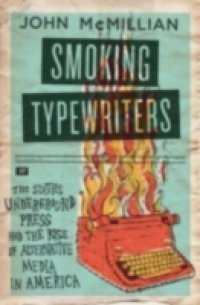How did the New Left uprising of the 1960s happen? What caused millions of young people-many of them affluent and college educated-to suddenly decide that American society needed to be completely overhauled? In Smoking Typewriters, historian John McMillian shows that one answer to these questions can be found in the emergence of a dynamic underground press in the 1960s. Following the lead of papers like the Los Angeles Free Press, the East Village Other, and the Berkeley Barb, young people across the country launched hundreds of mimeographed pamphlets and flyers, small press magazines, and underground newspapers. New, cheaper printing technologies democratized the publishing process and by the decade's end the combined circulation of underground papers stretched into the millions. Though not technically illegal, these papers were often genuinely subversive, and many of those who produced and sold them-on street-corners, at poetry readings, gallery openings, and coffeehouses-became targets of harassment from local and federal authorities. With writers who actively participated in the events they described, underground newspapers captured the zeitgeist of the '60s, speaking directly to their readers, and reflecting and magnifying the spirit of cultural and political protest. McMillian pays special attention to the ways underground newspapers fostered a sense of community and played a vital role in shaping the New Left's highly democratic "movement culture." Deeply researched and eloquently written, Smoking Typewriters captures all the youthful idealism and vibrant tumult of the 1960s as it delivers a brilliant reappraisal of the origins and development of the New Left rebellion.

